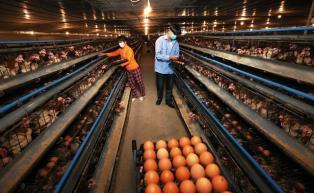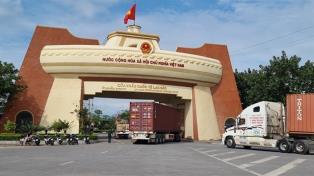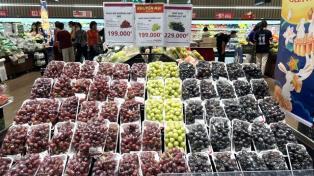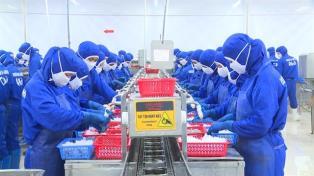It is time for farmers, cooperatives and enterprises to embrace official export pathways to ensure sustainable growth and improved market access as recent challenges such as congestion at border gates and concerns regarding price and quality underscore the urgency for change.
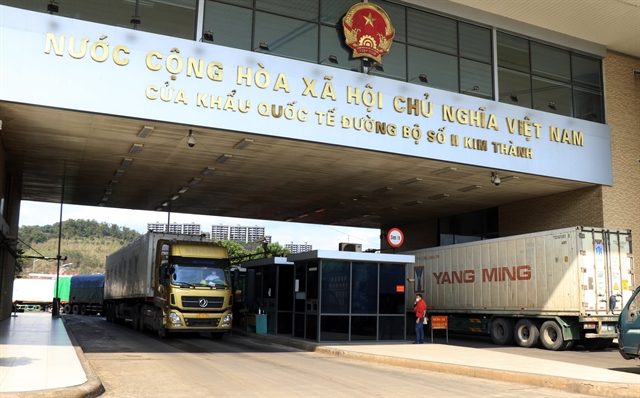
HÀ NỘI — For years, unofficial exports have served as a vital channel for Vietnamese agricultural goods - especially in border regions - thanks to their flexibility, lower costs and simplified procedures. But rising border congestion and growing concerns around price and quality highlight the urgent need for a shift.
Industry leaders now urge farmers, cooperatives and enterprises to embrace official export pathways to ensure sustainable growth and stronger market access.
Nguyễn Thị Thu Liên of the Association of Food Transparency called reliance on unofficial exports a “short but unsustainable path” for Vietnamese agricultural products.
Supporting this, Đỗ Việt Phương, Vietnam’s Trade Counsellor in Cambodia, noted that while informal exports might be common among neighbouring countries and offer some advantages, they posed significant risks and limitations.
Experts stress that official export channels bring real strategic benefits - chief among them, a legal framework and transparency that foster market trust and stability.
Moving to official exports requires structured contracts aligned with international practices, clearly defining terms such as goods, unit prices, specifications, quality, packaging, transportation, payment and dispute resolution. This formal approach protects both parties, reduces the risk of price gouging or delivery disputes, and provides clarity during market fluctuations.
Furthermore, official channels enhance product quality and traceability - critical for smooth customs clearance and increasing the competitiveness of Vietnamese agricultural commodities in global markets.
Director of Thanh Bình Cooperative in Đồng Nai Lý Minh Hùng emphasised the necessity for official export goods to have clear origins, food safety testing and full traceability.
He explained that this would not only satisfy partner requirements but motivate producers to improve quality across cultivation and packaging, resulting in safer, standards-compliant products. The approach, he said, would encourage higher-quality output from farm to fork.
The push to transition has become more pressing as import regulations in China tighten. China continues to toughen rules around quality standards, quarantine testing, food safety, hygiene and traceability.
Notably, China’s new GB 2763‑2021 standards now stipulate 10,092 maximum residue limits (MRLs) for 564 pesticides covering 376 food items - a 42 per cent increase in residue limits and an 81‑item rise in listed pesticides compared with previous norms.
Việt Nam’s agriculture sector now stands at a pivotal crossroads. Transitioning from informal to official export mechanisms is not merely a regulatory exercise - it is a strategic imperative.
By embracing transparency, legal frameworks and quality assurance, Vietnamese exporters can build trust, tap into global markets and ensure long-term, sustainable growth - not just survive, but thrive on the world stage.
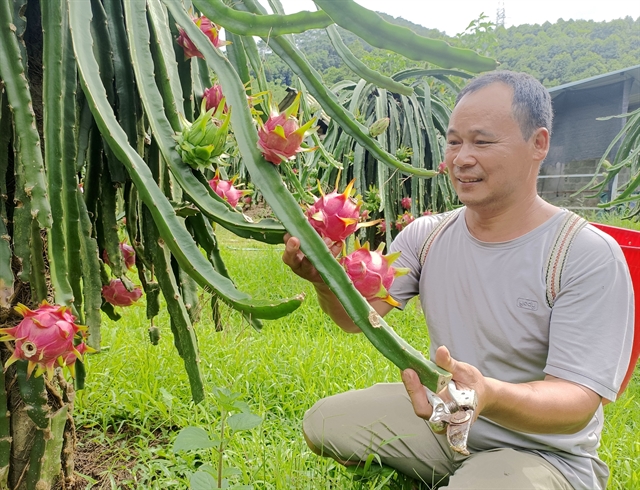
Deputy Director of Cần Thơ Department of Agriculture and Environment Trần Thái Nghiêm highlighted the consequences of non-compliance. Shipments that exceeded pesticide residue limits or harbour harmful organisms on the plant quarantine list face rejection and destruction.
Furthermore, such violations could lead to a temporary suspension of imports for that product from Việt Nam, Nghiêm told vnbusiness.vn.
According to economic expert Trần Hữu Hiệp, while official exports may involve higher initial investment costs and less flexibility in standards compared to unofficial exports, these challenges are temporary. Such costs represent an investment in quality, production processes and the brand identity of cooperatives and businesses.
Instead of viewing this as a burden, cooperatives and enterprises should see it as a catalyst for a mindset shift, from reactive production to standard-compliant practices, Hiệp said, adding that adhering to international regulations, including those set by China, would enhance competitiveness not only in the Chinese market but also in other demanding markets.
Achieving this required collaboration among the Government, cooperatives, businesses and the public, Hiệp noted.
He suggested the Government implement policies that provide support in terms of capital, technical assistance, and market information to facilitate the transition for businesses and cooperatives.
Meanwhile, cooperatives and enterprises must proactively seek to understand, invest in technology and collaborate with reputable organisations to produce standardised products, thereby easing the path for official exports, Hiệp said. — VNS

